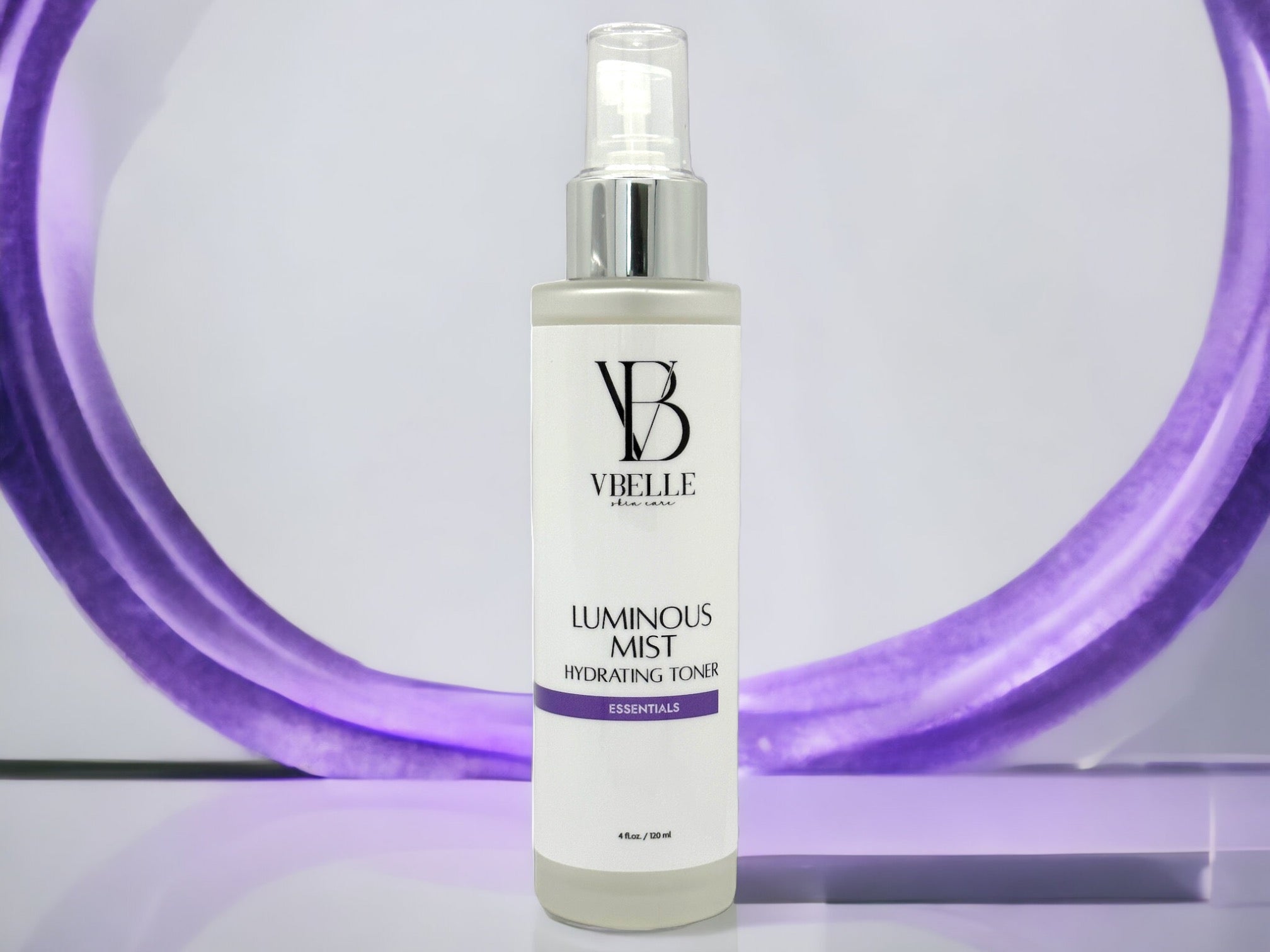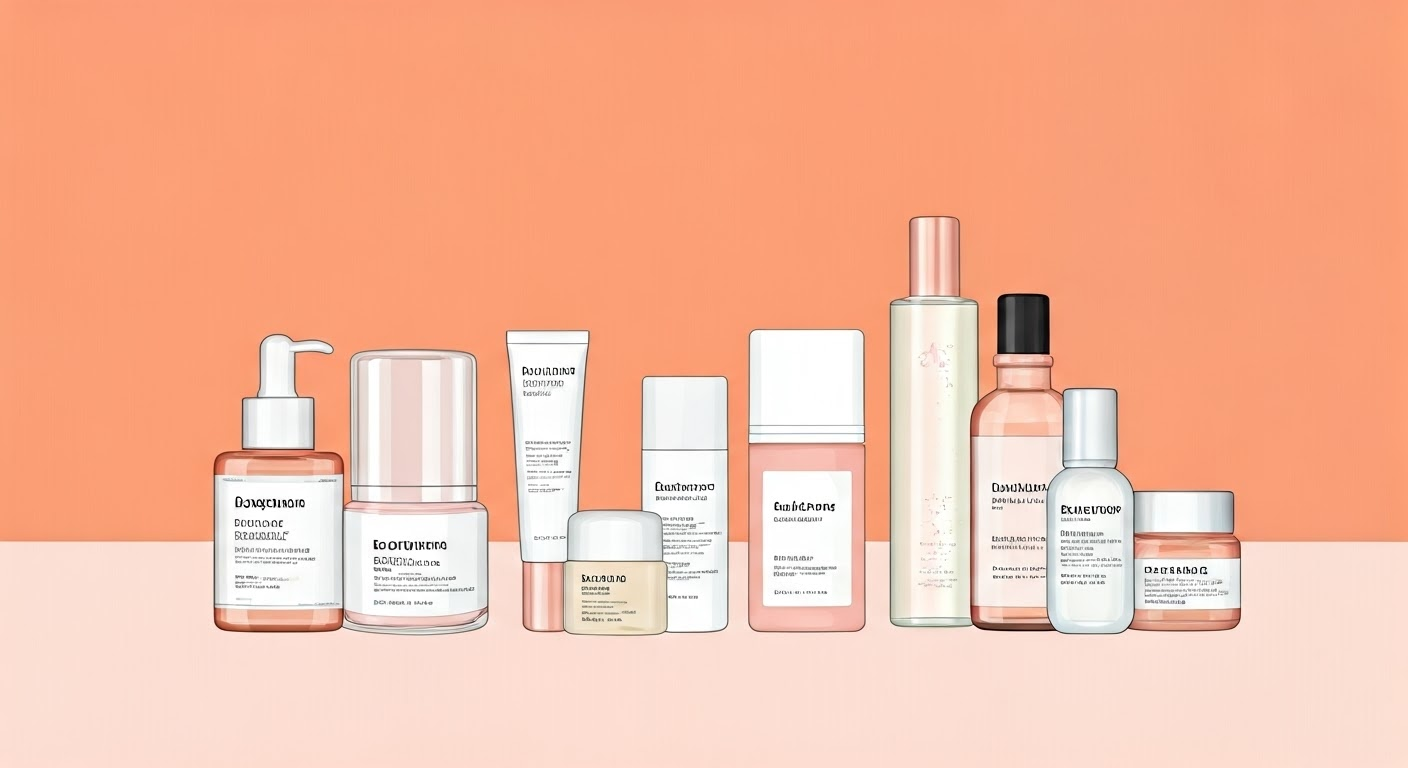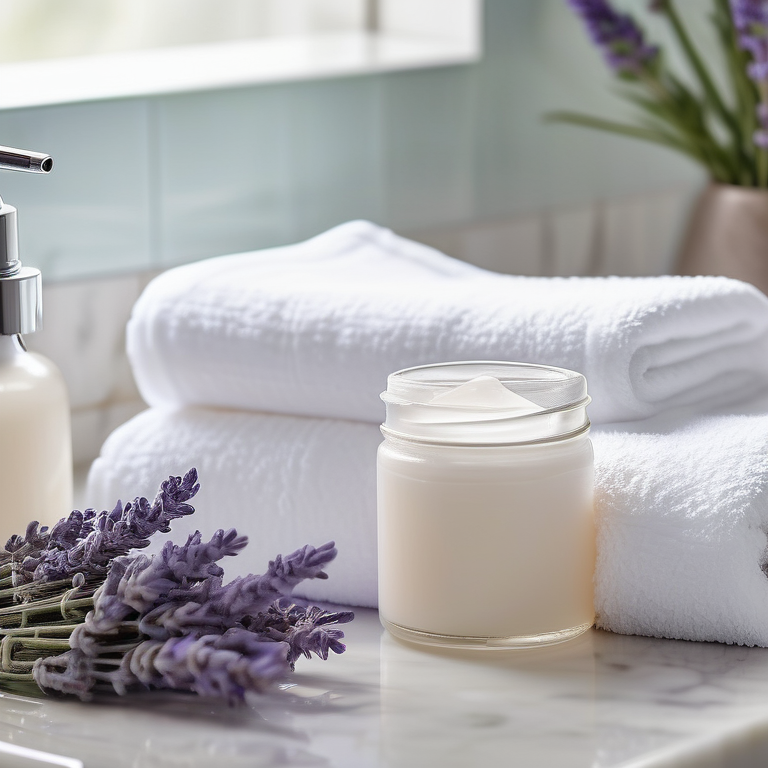Top Reasons: Why Is It Important To Take Care Of Your Skin?


Key Highlights
- Your skin, the largest organ, acts as a protective barrier against environmental damage, regulates body temperature, and plays a crucial role in overall health.
- Proper skin care helps maintain the skin's health, promoting a youthful appearance and boosting confidence.
- Understanding your skin type and using the right products is vital for effective skin care.
- Protecting your skin from sun damage is crucial for preventing premature aging and skin cancer.
- A healthy lifestyle, including a balanced diet and stress management, contributes to optimal skin health.
- Prioritizing skin care is an investment in your overall well-being.
Introduction
Skin care is often thought of just for beauty, but it is much more important than that. Our skin, being the largest organ in the human body, protects us from outside dangers like a natural suit of armor. We eat well and exercise to care for our bodies, and we should also take care of our skin. This helps us keep a healthy glow and supports our overall health.
The Vital Role of Skin in Your Overall Health
Our skin is important. It protects our organs from bad bacteria, UV radiation, and pollution. It also helps control our body temperature, keeping us cool when it's hot and warm when it’s cold. Healthy skin is key for making vitamin D. Vitamin D is essential for strong bones and a healthy immune system.
In addition to these important tasks, our skin can show how healthy we are inside. Issues like rashes, dryness, or changes in color can point to health problems. This shows how our skin and overall health are connected.
Protecting Against Environmental Damage
One important reason why skin care matters is that it helps protect our skin from damage caused by the environment. Every day, we face pollution, UV radiation, and rough weather. These can harm our skin, causing early aging, dark spots, and a higher chance of getting skin cancer.
Sun damage is especially worrying. Too much UV exposure can hurt skin cells and speed up the loss of collagen. This leads to wrinkles, fine lines, and age spots. In worse cases, sun damage can cause skin cancer, which is the most common type of cancer in the world.
Having a good skin care routine that includes using sunscreen with a high sun protection factor (SPF) every day creates a barrier against harmful environmental elements. This helps keep our skin healthy and looking young.
Regulation of Body Temperature and Detoxification
Our skin is very important for keeping our body temperature stable. It helps our internal systems work well. The process is mostly managed by our sweat glands. They make sweat to cool us down when we get too hot.
Our skin also helps remove toxins and waste by releasing sweat. This detox process is natural and helps keep our body balanced and healthy.
To keep our skin working well for temperature regulation and detoxification, we need to have a healthy and well-hydrated skin barrier. Good skin care, like regular washing and moisturizing, makes sure our skin can do these essential jobs properly.
How Proper Skin Care Contributes to Beauty and Confidence
Taking care of our skin is important for our health and can make us feel more beautiful and confident. Regular skin care is key. A skin care routine that fits your skin type and addresses your concerns can lead to healthier and brighter skin.
When we feel happy with our skin, it clearly shows. Healthy skin can raise our self-esteem and highlight our natural beauty. It also helps us feel more confident when we are with other people. It lets our inner glow shine through.
Enhancing Natural Beauty with a Healthy Glow
Healthy skin has a nice glow that comes from inside. A good skin care routine helps by cleansing, exfoliating, and moisturizing. This routine removes dirt, makes skin brighter, and improves texture.
When we give our skin what it needs, it helps cells refresh, which leads to a smoother and more even look. Skin that is well-hydrated looks fuller and younger, which reduces the look of fine lines and wrinkles.
In the end, good skin care is about making our natural beauty shine. It helps boost our confidence with a healthy and glowing complexion.
Boosting Self-Esteem and Social Confidence
The way we look affects how we feel about ourselves. When we are happy with our skin, it helps us feel better about ourselves. This boosts our confidence when we are around other people. Having clear and healthy skin makes it easier to talk to others and feel relaxed.
On the other hand, skin problems, even small ones, can hurt our self-esteem. Issues like acne, dryness, or uneven skin can make us feel uneasy and less willing to join social events.
By taking care of our skin and focusing on specific concerns, we can make our skin healthier. This often leads to feeling better about ourselves and being more confident in social situations.
The Science of Skin Aging and How Care Can Slow It Down
As we get older, our skin goes through many changes. Collagen production slows down, new skin cells do not grow as quickly, and our skin can get damaged by the environment. These changes can lead to fine lines, wrinkles, dark spots, and less elasticity.
Although we cannot fully stop aging, proper skin care can reduce these effects. We can help our skin look younger and stay healthy by using ingredients that support collagen production, provide protection from free radicals, and increase hydration.
Understanding the Effects of Aging on Skin
Skin aging is a normal part of life, shaped by both our genes and the environment. As we get older, our skin makes less collagen. Collagen is important because it helps keep our skin strong and flexible. When collagen levels drop, we start to see fine lines and wrinkles, which are clear signs of aging.
Our skin also stops renewing itself as quickly, leading to a dull appearance and more age spots. Plus, the moisture barrier of our skin gets weaker. This makes our skin drier and more prone to irritation.
By understanding how skin aging works, we can make better choices for our skin care routines. This helps us pick products and treatments that target these signs of aging.
Preventative Measures for Youthful Skin
We can't go back in time, but we can take steps to keep our skin looking young. It is important to start a good skin care routine early. This routine should include protecting your skin from the sun every day, using gentle cleansers, and using products that help with collagen and fight free radical damage.
Adding antioxidants like vitamin C, retinol, and hyaluronic acid to your routine can help. They can fight free radicals, boost collagen production, and keep your skin hydrated. These steps help reduce fine lines, wrinkles, and age spots.
Lifestyle choices are also very important. Eating a healthy diet with lots of antioxidants, drinking enough water, and managing stress all help your skin stay healthy. Doing this can help you have a youthful and glowing complexion.
The Link Between Skin Health and Mental Wellbeing
The link between skin health and mental well-being is clear. Skin issues can greatly affect how we feel about ourselves. They can change our body image and how we interact with others. This may lead to anxiety, stress, or even depression.
On the other hand, the relationship goes both ways. Stress and negative feelings can make skin problems worse or cause new ones. This shows how important it is to take care of both our skin and our mental health together.
The Psychological Impact of Skin Conditions

Living with a skin condition can affect your mental health. Conditions like acne, eczema, or psoriasis may make you feel self-conscious, embarrassed, and frustrated. Having these visible conditions can change how you interact socially and lower your self-esteem.
People with skin conditions might feel anxious about how they look or worry about what others think. These concerns can lead to feeling alone, pulling back from social situations, and being in a low mood.
It’s important to know that you are not alone. Support groups, therapy, and talking openly with healthcare professionals can really help you manage the mental effects of skin conditions.
Skin Care as a Form of Self-Care and Its Mental Benefits
Incorporating skin care into our daily routines helps us in more ways than just keeping our skin healthy. It can turn into a way to take care of ourselves that benefits our mental health too. Taking a little time for ourselves each day, even for just a few minutes, can really improve our mood and reduce stress.
Following a calming skin care routine can be very soothing. Gently washing our face, using a hydrating mask, or taking a moment to look at ourselves can help us relax, lessen anxiety, and bring a sense of peace.
When we make skin care a priority for self-care, we care for our skin and build a better relationship with ourselves. This can make us feel more valuable and improve our overall well-being.
Essential Steps in a Daily Skin Care Routine
A daily skin care routine is very important for healthy and glowing skin. The exact products you use might change based on your skin type and needs. However, a simple routine usually includes cleaning, exfoliating, toning, and moisturizing.
Cleansing gets rid of dirt, makeup, and other impurities. Exfoliating helps remove dead skin cells, which makes your skin look brighter. Toning works to balance your skin's pH. Moisturizing gives hydration and helps protect your skin. Don’t forget to add sunscreen in the morning. It is key to guard your skin from harmful UV rays.
Identifying Your Skin Type for Personalized Care
Before you start a skin care routine, it's important to know your skin type. Understanding this helps you pick products that suit your needs. This way, you can get the best results and lower the chance of causing irritation.
The main skin types are normal, dry, oily, combination, and sensitive skin. Each type has its own features and needs different care. For example, oily skin works best with oil-free and non-comedogenic products. On the other hand, dry skin benefits from richer and more hydrating products.
A good skincare routine should fit your specific needs. If you're not sure about your skin type, talk to a dermatologist or aesthetician. They can give you helpful advice and point you to the right products.
Key Components of a Daily Skin Care Regimen
A good daily skin care routine should focus on your skin needs. It should also include important steps for healthy skin. Start by washing your face twice a day—once in the morning and once at night. This helps to get rid of dirt and extra oil.
Exfoliation is important too. It removes dead skin cells and helps new skin to grow. Depending on your skin type, you should exfoliate 1-3 times a week using a soft scrub or a gentle chemical. After exfoliating, use a toner. This will help balance your skin’s moisture and prepare it to absorb serums and moisturizers better.
Hydrate your skin. Use a moisturizer every morning and night. This will lock in moisture and make your skin stronger. Don't forget to apply a broad-spectrum sunscreen every morning. Choose one with at least SPF 30, even if it’s cloudy. This protects your skin from harmful UV rays.
The Importance of Sun Protection Every Day
Sun protection is very important for healthy and young-looking skin. The sun's UV rays can cause early aging, dark spots, and even skin cancer. It’s essential to use sun protection every day, no matter the weather or your skin color.
Pick a broad-spectrum sunscreen that has a sun protection factor (SPF) of 30 or more. Put it on all your uncovered skin about 15-20 minutes before you go outside. Remember to apply it again every two hours, especially if you have been sweating or swimming.
Keep in mind that sun damage adds up over time, even when it’s cloudy. Making sun protection a must in your daily routine is the best way to stop early aging and lower your chances of getting skin cancer.
Selecting the Right Skin Care Products

Choosing skin care products can be confusing. There are many brands and ingredients to think about. You need to pick the right ones for your skin needs. Start by knowing your skin type, concerns, and any sensitivities you might have.
Then, look into the ingredients. Find products that have scientific support. Look for things like hyaluronic acid to help with hydration, retinol for aging skin, vitamin C for a brighter look, and niacinamide to reduce pores and control oil.
Ingredients to Look For Based on Your Skin Concerns
Taking care of your skin involves using the right ingredients. For dryness, pick products with hyaluronic acid and glycerin to keep moisture in. To treat acne, use salicylic acid and benzoyl peroxide to fight bacteria and clear pores. Dark spots can be lightened with vitamin C, niacinamide, and licorice root extract. Remember, everyone's skin is different, so test new products on a small area first if you have sensitive skin. Consult a dermatologist or aesthetician for personalized advice on ingredient selection.
The Truth About Organic and Natural Skin Care
In recent times, simple skin products are trendy. They seem mild but pick carefully. "Natural" isn't always best. Organic items may irritate or cause allergies. When choosing such products, seek trusted certifications to ensure genuine and sustainable ingredients. Remember, skincare is vital for good health. To maintain healthy skin, nourish your body internally by eating well, staying hydrated, exercising, and managing stress.
Conclusion
Taking care of your skin is not just about looking good. It is also important for your health and wellness. Good skincare protects your skin from damage and helps keep your body at the right temperature. It can even boost your self-esteem. By learning about skin aging and taking steps to prevent it, you can slow down aging and keep your skin looking young. There is also a strong link between skin health and mental wellbeing. This shows that skincare is an important part of self-care. Setting up a daily skincare routine that fits your skin type and using the right products can help your natural beauty shine and make you feel more confident. Healthy skin leads to a better self-image and helps support your mental health.
Frequently Asked Questions
What are the first signs of aging and how can I address them?
The first signs of aging usually show up as small lines around the eyes and mouth. A good skin care routine that includes vitamin C, retinol, and, most importantly, sun protection can help reduce their visibility.
How often should I change my skin care routine?
Your skin care routine needs to change as your skin changes. Daily cleansing with a gentle cleanser and warm water should always be part of it. However, you may need to change products based on the season, climate, or the condition of your skin.
Can diet and lifestyle affect my skin?
A healthy diet is very important for healthy skin. It should include lots of fruits, vegetables, and plenty of water. Managing stress and getting enough sleep are also key to having a glowing complexion.




